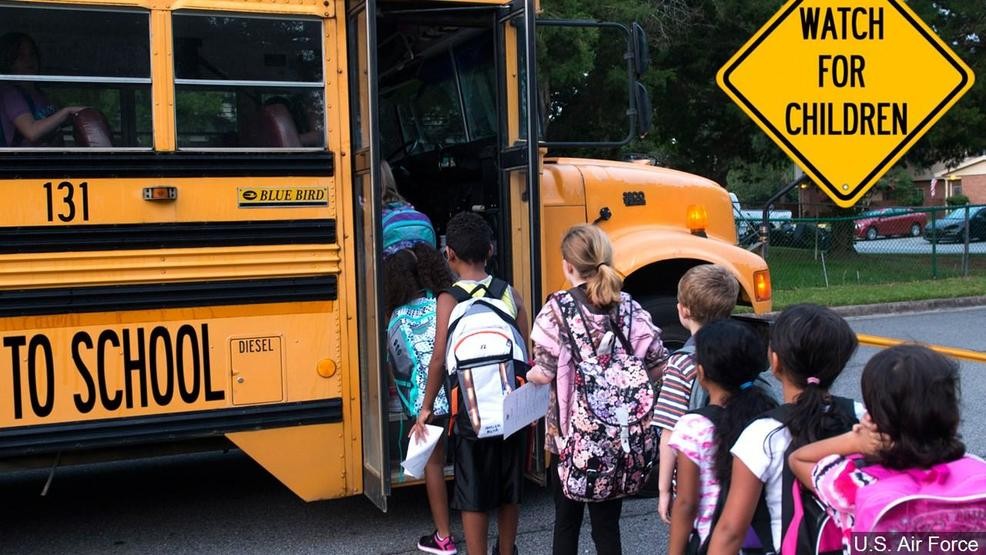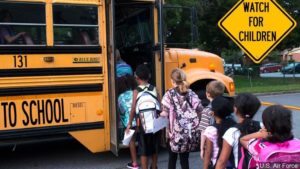Did you know that this is National School Bus Safety Week? To give this important week its full due, here are the conclusions from Asbury Park Press and USA TODAY Network Atlantic Group’s deep dive into loopholes in New Jersey’s school bus laws that make transportation potentially hazardous.
- New Jersey issued an average of eight safety violations for every bus inspected by surprise, compared with one violation for every 345 buses issued during a pre-announced inspection in 2019. But the state inspects only about 100 school buses per year via unannounced inspections, compared with 47,000 buses during pre-scheduled inspections.
- Those surprise inspections have turned up drivers without proper licenses or endorsements, those with suspended licenses and more serious charges, including a wanted sex offender who allegedly failed to register his address under Megan’s Law requirements.
- Since 2017, over 3,000 drivers with an “S” endorsement — a required certification to drive a school bus — have been disqualified from the job after receiving that endorsement.
- About 10% of those disqualifications were due to a criminal charge.
- The motor vehicle “points” system still allows drivers with a history of unsafe driving — including school bus crashes — legally behind the wheel of school buses, since points expire over time.
- State agencies routinely point fingers at each other when it comes to enforcement of school bus safety laws, creating a “spider web” of enforcement that lets dangerous bus drivers — and the companies that hire them — off the hook.
- “Rogue operators” often rename their companies to retain lucrative taxpayer-funded contracts despite troubling safety reputations. One company, which was later charged with covering up its practice of hiring unqualified drivers with criminal records, reincorporated at least 21 times.
- New Jersey law gives school districts little leeway in rejecting iterations of those “rogue contractors” if the new company offers the lowest bid.
- Since 2014, at least 40% of safety violations have been dismissed by prosecutors in municipal courtrooms, where most motor vehicle cases are handled.
And here’s some narrative from the exposé:
Meanwhile, New Jersey taxpayers shell out an estimated $1.5 billion annually in school transportation costs, predominantly to private bus contractors.
The DOE did not make interim Commissioner Kevin Dehmer available for comment or to answer questions on the Network’s findings.
The Network reviewed all of the [Motor Vehicle Commissions’s] school bus inspection reports and memos in 2019, which detail the lengths taken by school bus companies and drivers to avoid facing penalties from the state.
At a surprise inspection May 31, 2019, at Donald Payne Technology School in Newark, MVC inspectors said they found one A-1 Elegant driver who had been driving on a suspended license and failing to provide records or documentation for the bus, including the required pre-trip inspection report. That same driver was arrested shortly after the inspection after a background check revealed he was a convicted sex offender, wanted on charges that he didn’t register his address, per Megan’s Law requirements.
While there have been reforms, problems are extensive.
In Newark, a woman drove a school bus with children across an intersection while overdosing on heroin. In Lakewood, a school bus rear-ended another car while the driver, in his fourth school bus crash in two years, felt the effects of the painkiller oxycodone.
One school bus company in Wallington, in Bergen County, dissolved after it was sued for allowing a 14-year-old student with special needs to open the emergency exit door, falling to her death. But the former manager of that company continued holding contracts in other school districts under different names, with school officials unaware of the connections.
Yet there’s this:
Bus drivers have one of the most underappreciated jobs in education, despite their level of responsibility. They suffer some of the worst behavior students have to offer. They interact with angry parents, avoid dangerous drivers and pass extensive testing and background checks for the opportunity to drive many of the state’s nearly 1.4 million students between home and school each day.
They do it for as little as $14 dollars an hour, the lowest-paid rungs on a billion-dollar ladder in New Jersey’s expansive school transportation network. The entire point of the bus transportation system is to deliver kids to classes and home and on time without incident. As the USA TODAY NETWORK New Jersey investigation has shown, that goal is not always achieved….
Now, she and other school bus drivers are facing a new, potentially fatal threat: COVID-19.




